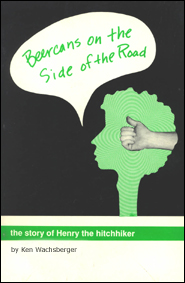Are you a reluctant writer with a fear of writing because you’re no good at mechanics, grammar, and spelling (MGS)?
Don’t be.
John Steinbeck Couldn’t Spell
John Steinbeck is my all-time favorite author. He could be serious and heavily political, as in The Grapes of Wrath, his classic story of migrant workers trying to find dignity and the American dream during the Depression era of the thirties. And he could be hilarious, as in The Short Reign of Pippin IV, his short satire on the French political system.
When I was writing my first novel, Beercans on the Side of the Road: The Story of Henry the Hitchhiker, whenever I got a mental block and didn’t know where to go next, I could pick out any book from my vast Steinbeck collection, turn to any page, and start reading any paragraph.
The way he could describe a man bending down on one knee, picking up a handful of sand from the beach, and watching it sift through the fingers of a softly folded fist was inspirational. I would read a page, maybe two, and then cast it aside as my own ideas started to replace his in my consciousness.
And yet Steinbeck was a poor speller. Thank goodness for competent editors. (He wrote before the days of Spell-Check.)
An Issue of Chicken and Egg
I bring up this Steinbeck anecdote to acknowledge a sad reality and make an important point:
- The sad reality: Although by the time students get to high school and college, they are assumed to be competent in mechanics, grammar, and spelling (MGS), in fact, many students, and adults, are not.
- The important point: Being deficient in MGS skills does not mean you can’t write a bestselling book.
Don’t ever think that because you stink at MGS and you have a fear of writing that you can’t write. What comes first, the chicken or the egg?
Confront Your Fear of Writing—by Writing
You can’t correct your errors until you know what they are and you can’t know what they are until you make them.
Excellent MGS skills are crucial to your making the desired impression on whoever reads your writing. But first write.
Then do the following and the skills will come:
- Ask your peers to pay special attention to those areas where you know you are weak. (Coming soon: “Peer Reviewing with Honesty and a Base of Goodwill.”)
- Get yourself a good grammar handbook and don’t sell it when your book is finished.
- If you’re affiliated with a school or university, drop in at its writing center and take advantage of its free tutoring services.
- Take a continuing education class.
- Hire an editor to review the final draft.
You may never become proficient in mechanics, grammar, and spelling. But no one else has to know besides your editor.
* * *
This piece was adapted from Ken Wachsberger’s You’ve Got the Time: How to Write and Publish That Book in You. Ken’s other books may be found here and here. For book coaching and editing help, email Ken at [email protected].







